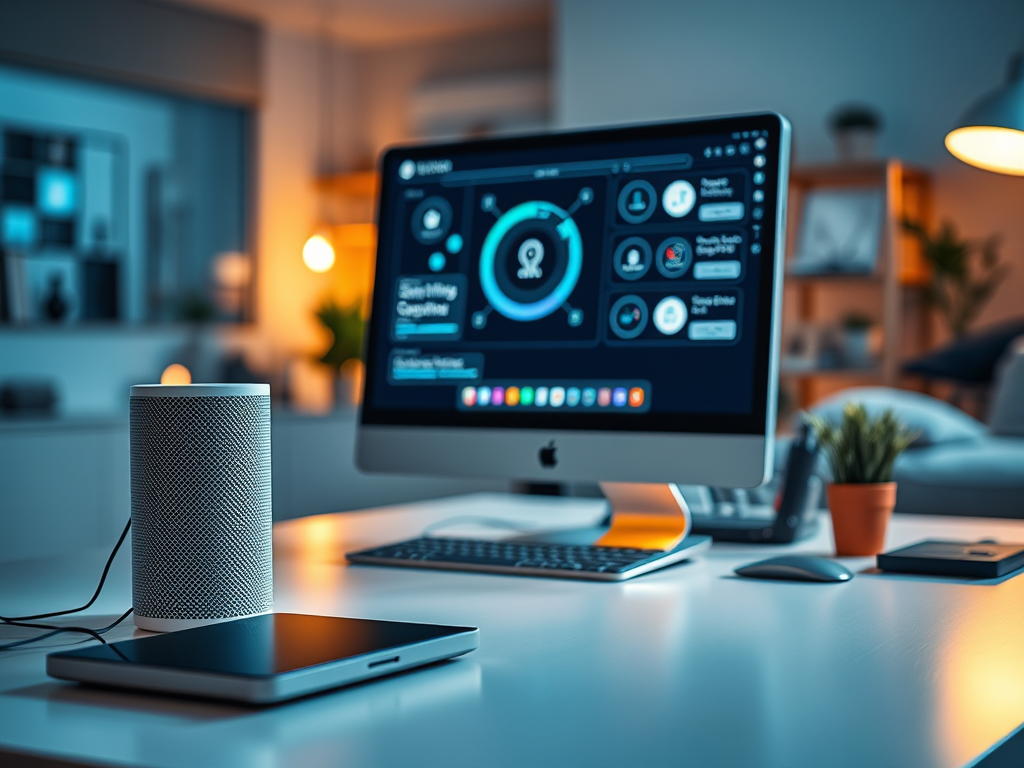In recent years, artificial intelligence (AI) has made significant strides, particularly in the realm of personal assistants. These AI assistants, also known as virtual or digital assistants, leverage advanced technologies such as natural language processing (NLP) and machine learning to understand user commands and perform a variety of tasks. From managing schedules to controlling smart home devices, AI assistants are becoming integral to our daily lives.
What is an AI Assistant?
An AI assistant is a software program designed to assist users by interpreting their commands—whether spoken or typed—and executing tasks accordingly. They serve as a bridge between humans and technology, simplifying routines and enhancing productivity. With the advent of generative AI tools like ChatGPT, these assistants are becoming increasingly sophisticated, capable of handling more complex interactions and providing personalized experiences.
Key Features of AI Assistants
AI assistants typically share several core features that enhance their functionality:
- Natural Language Understanding: They can comprehend user inputs in natural language, making interactions feel more conversational.
- Task Automation: From setting reminders to sending emails, AI assistants can automate mundane tasks, freeing up time for users.
- Integration with Devices: Many AI assistants work seamlessly with various devices and applications, allowing for a cohesive user experience across platforms.
- Learning Capabilities: Over time, AI assistants learn from user interactions to provide more personalized responses and recommendations.
Popular AI Personal Assistants
Several prominent AI personal assistants have emerged in the market, each with unique strengths:

- Siri: Launched by Apple in 2011, Siri was one of the first AI personal assistants. It is integrated into all Apple devices and uses voice recognition to perform tasks such as sending messages, setting reminders, and providing directions. Siri adapts to user preferences over time, making it highly personalizable.
- Google Assistant: This assistant engages users through both text and voice commands. It excels at answering questions, scheduling alarms, and controlling smart home devices. Google is continuously enhancing its capabilities with generative AI features that allow for more personalized interactions.
- Amazon Alexa: Known for its presence in smart home devices like the Echo speaker, Alexa can create shopping lists, play music, and control various home appliances. Amazon is also developing a generative AI version of Alexa to make it more conversational.
- Microsoft Cortana: Initially launched as a competitor to Siri and Google Assistant, Cortana has shifted its focus towards productivity within Microsoft 365 applications. It helps users manage tasks and schedules effectively.
- Samsung Bixby: Integrated into Samsung devices, Bixby allows users to perform tasks through voice commands. It learns user habits over time and can interact with various Samsung appliances.
The Impact of AI Assistants on Daily Life
AI assistants have transformed how individuals manage their daily activities. By automating routine tasks such as scheduling meetings or setting reminders, they enable users to focus on more important aspects of their lives. For example:
- Time Management: Users can rely on AI assistants to schedule appointments and send reminders, helping them stay organized without manual effort.
- Smart Home Control: With the ability to control smart devices through voice commands, AI assistants enhance convenience in home management.
- Information Access: Users can quickly access information by asking questions verbally or through text inputs, making knowledge retrieval seamless.
The Future of AI Assistants
As technology continues to evolve, the capabilities of AI assistants are expected to expand significantly. The integration of generative AI will allow these assistants to engage in more complex conversations and provide tailored advice based on user preferences. Future developments may include:
- Enhanced Personalization: With improved learning algorithms, AI assistants will offer even more personalized experiences by understanding individual user behaviors and preferences better.
- Broader Integration: As smart home technology advances, we can expect deeper integration between AI assistants and various IoT devices, allowing for more comprehensive home automation solutions.
- Improved Contextual Understanding: Future models will likely be better at understanding context in conversations, enabling them to provide relevant responses based on previous interactions.
Conclusion
AI personal assistants are reshaping how we interact with technology in our daily lives. By simplifying tasks and enhancing productivity through automation and intelligent responses, they serve as valuable tools for both personal and professional use. As advancements in artificial intelligence continue to unfold, these virtual helpers will become even more integral to our routines—making life easier and more efficient than ever before. Whether it’s managing schedules or controlling smart homes, the future of AI assistants looks promising as they evolve alongside technological innovations.


Leave a Reply